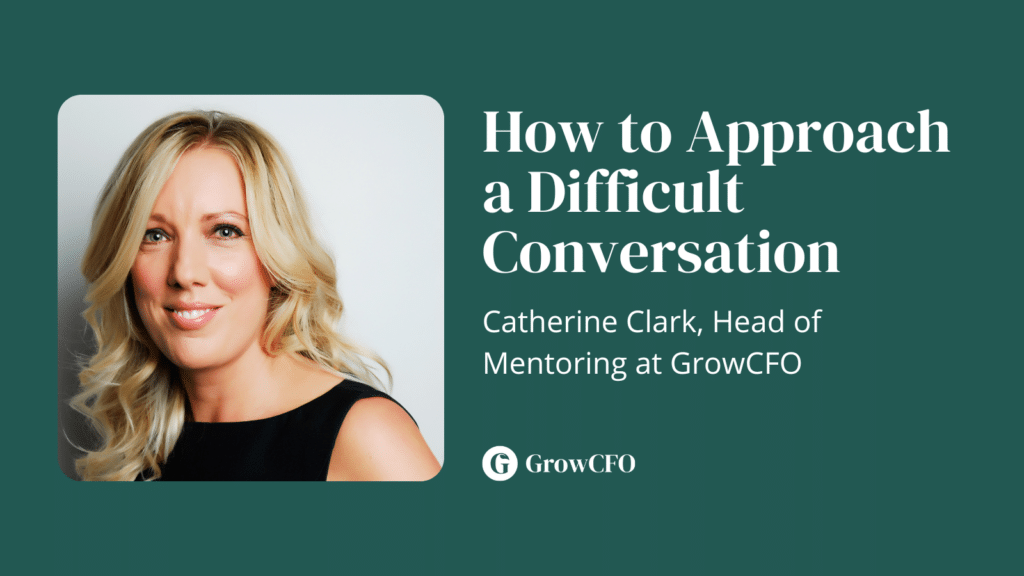#142 How to Approach a Difficult Conversation with Catherine Clark, Head of Mentoring at GrowCFO


Catherine Clark is head of mentoring at GrowCFO. She frequently supports her mentees when they need to have a difficult conversation. Difficult conversations can take place for a variety of reasons, In this episode Kevin and Catherine discuss the challenges of a difficult conversation and why you shouldn’t avoid such conversations. They highlighted that a difficult conversation can cause anxiety and stress, but approaching it with curiosity and open questions can lead to better understanding and resolution.
It’s possible you could be either the instigator or the recipient of the conversation, and Catherine and Kevin explore both positions and provide some great guidance that you can follow in whichever role you find yourself in.
Catherine and Kevin discuss the importance of having difficult conversations and how to approach them. They emphasise the need to believe in a positive outcome, understand differing viewpoints, acknowledge emotions, and maintain empathy and open communication. They discuss the need for open communication, avoiding knee-jerk reactions, finding the right time and environment, and being specific in order to prevent misunderstandings and maintain productivity.
Kevin and Catherine discuss the importance of providing constructive feedback. They emphasize the need for open communication, timeliness, creating a conducive environment, and being willing to engage in uncomfortable conversations for personal and professional growth.
Links
- Mentoring at GrowCFO with Catherine Clark
- Catherine Clark on LinkedIn
- Kevin Appleby on LinkedIn
- Susan Jeffers – Feel The Fear And Do It Anyway: How to Turn Your Fear and Indecision into Confidence and Action on Amazon UK and Amazon US
Timestamps
What’s a difficult conversation? (0:11)
What’s going on in our brains to make difficult conversations feel like difficult things to talk about? (1:46)
How to have difficult conversations with people. (4:00)
You can choose how you behave and how you show up. (8:37)
How do we see ourselves in these difficult conversations? (11:12)
What to do if you’re upset about something. (16:17)
Avoid written response, make it a spoken response. (18:14)
How do we deal with difficult conversations as the recipient? (19:59)
If you’re instigating the conversation. (23:26)
How do you conduct difficult conversations online? (25:43)
Podcast: Play in new window | Download





Responses